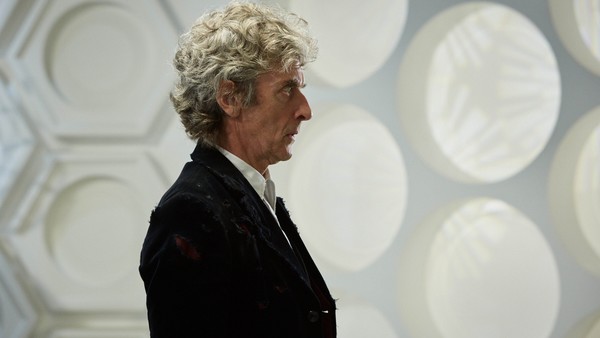Doctor Who Christmas Special 2017: What ‘Twice Upon A Time’ Really Means
7. The Name Of The Doctor

One of Steven Moffat’s most revisited themes, the secrecy behind the name of the Doctor has featured at varying degrees of importance from an occasional joke to a complex multi-episode plot line. Twice Upon a Time offered another new take on the issue, but for once this time Steven Moffat can’t take all the credit.
When giving advice to his successor, the Doctor warns her not to disclose her name to anybody because they wouldn’t understand anyway, but then corrects himself: “except children. Children can hear it.”
The idea that the Doctor’s name can only be heard by children comes from a comment that Peter Capaldi made during the premiere screening of The Pilot, perhaps influenced by one of his recent movies, Paddington (since Mr Brown has trouble trying to say Paddington’s bear name):
“I don’t think human beings could even really say his name. But I think we might be able to hear it. At a certain frequency. If the stars are in the right place, and your heart’s in the right place, you’ll hear it.”
Moffat applied those words to children, implying that they are the ones most likely to be open to the possibility. Physiologically it’s true that children can pick up on high pitched sounds that are inaudible to adult ears, but the twist here is that childhood innocence, imagination, positivity, faith and optimism are all necessary conditions for recognising the Doctor for who he is. One of the hallmarks of Moffat’s time at the helm is that children feature commonly in his stories, often as the Doctor’s confidants. It will be interesting to see what role, if any, children play in Chibnall’s first series, but the Doctor for one doesn’t want them to be forgotten.